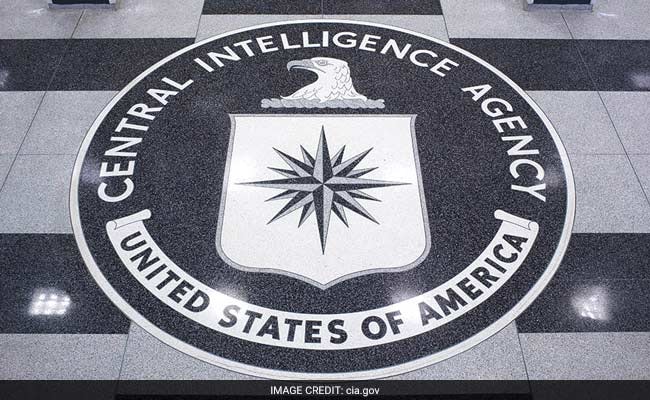
The CIA had thought it had shredded a document on water boarding before discovering it hadn't done so
Washington:
The Central Intelligence Agency thought for months that it had mistakenly shredded a massive U.S. Senate report on its use of waterboarding and other "enhanced interrogation techniques" before suddenly discovering that its copy had not been lost after all, an agency official said on Tuesday.
"It's embarrassing and I have apologised," Christopher Sharpley, the acting CIA Inspector General, told the Senate Intelligence Committee during his confirmation hearing as President Donald Trump's nominee for the position.
Championed by Democratic Senator Dianne Feinstein when she chaired the Senate panel, the "torture report," as it is known, is the result of a six-year investigation into so-called enhanced interrogation techniques used by the CIA after the Sept. 11, 2001, attacks, during the administration of Republican President George W. Bush.
The report has been the subject of disputes between the agency and committee Democrats, and Democrats and Republicans over issues including whether it should be declassified and whether investigators broke the law as they assembled it.
Feinstein wants the 6,700-page document declassified.
Sharpley said the CIA received the report in December 2014 on a computer disk, which was then uploaded into a classified system. Shortly thereafter, he said, the agency was told to delete it because of ongoing Freedom of Information Act (FOIA) litigation.
An email was sent saying the disk should not be destroyed, but Sharpley said months later, he was told it could not be found and an employee said it had been shredded.
But the disk was discovered later, after the FOIA litigation, he said, which concluded that the report was a "congressional" document, meaning it is not subject to FOIA requests.
Around that time, Sharpley said the committee's current chairman, Republican Senator Richard Burr, asked him to return the disk and he did so.
Democrats on the committee appeared frustrated by Sharpley's account.
"The point of distributing it to the departments was in the hope that they would read it - not look at it as some poison document - and learn from it," Feinstein said, noting that to her knowledge, not a single fact in the reporthas been refuted.
Sharpley said he had not read the report, only the executive summary.
Democratic President Barack Obama ended the use of "enhanced interrogation techniques" via executive order in January 2009. Led by Feinstein and Republican Senator John McCain, Congress has since passed legislation outlawing their use.
Burr said he planned a vote on Sharpley's nomination next week and he looked forward to supporting him.
(This story has not been edited by NDTV staff and is auto-generated from a syndicated feed.)
"It's embarrassing and I have apologised," Christopher Sharpley, the acting CIA Inspector General, told the Senate Intelligence Committee during his confirmation hearing as President Donald Trump's nominee for the position.
Championed by Democratic Senator Dianne Feinstein when she chaired the Senate panel, the "torture report," as it is known, is the result of a six-year investigation into so-called enhanced interrogation techniques used by the CIA after the Sept. 11, 2001, attacks, during the administration of Republican President George W. Bush.
The report has been the subject of disputes between the agency and committee Democrats, and Democrats and Republicans over issues including whether it should be declassified and whether investigators broke the law as they assembled it.
Feinstein wants the 6,700-page document declassified.
Sharpley said the CIA received the report in December 2014 on a computer disk, which was then uploaded into a classified system. Shortly thereafter, he said, the agency was told to delete it because of ongoing Freedom of Information Act (FOIA) litigation.
An email was sent saying the disk should not be destroyed, but Sharpley said months later, he was told it could not be found and an employee said it had been shredded.
But the disk was discovered later, after the FOIA litigation, he said, which concluded that the report was a "congressional" document, meaning it is not subject to FOIA requests.
Around that time, Sharpley said the committee's current chairman, Republican Senator Richard Burr, asked him to return the disk and he did so.
Democrats on the committee appeared frustrated by Sharpley's account.
"The point of distributing it to the departments was in the hope that they would read it - not look at it as some poison document - and learn from it," Feinstein said, noting that to her knowledge, not a single fact in the reporthas been refuted.
Sharpley said he had not read the report, only the executive summary.
Democratic President Barack Obama ended the use of "enhanced interrogation techniques" via executive order in January 2009. Led by Feinstein and Republican Senator John McCain, Congress has since passed legislation outlawing their use.
Burr said he planned a vote on Sharpley's nomination next week and he looked forward to supporting him.
© Thomson Reuters 2017
(This story has not been edited by NDTV staff and is auto-generated from a syndicated feed.)
Track Latest News Live on NDTV.com and get news updates from India and around the world

